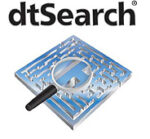After four years of effort, Nokia has given up on Qt. The company’s attempts to mold Qt into a mobile platform and framework have clearly been deemed a failure, as evidenced by its layoff of hundreds in Brisbane, Australia, and its sale of the remaining Trolltech and Qt assets to third-party Qt development firm Digia.
Juhapekka Niemi, director of Qt at Digia, said that the company plans to continue innovating the framework, and to push forward around desktop and mobile device support. He also added that Digia had purchased the commercial service and support business for Qt from Nokia in 2010, and that the success of that acquisition was part of the reason for this purchase from Nokia of the rest of the Qt assets.
“I think, overall, the acquisition is a good thing, especially because when Nokia announced their strategy in June, the last couple of months were a time of uncertainty,” he said. “We hope to launch Qt 5 soon, in the next couple of months. I think, also, this announcement was for people working on Qt 5: They now understand what the future holds for them.”
With this purchase, however, the company will now take over development duties on Qt, and will become the keeper of the project as a whole.
“We definitely believe the cross-platform strategy is the future for Qt. We will continue to invest in the desktop, and we support Android and iOS. The Android port is used pretty extensively today, and we hope to make it better,” said Niemi.
He went on to state that the existing dual-license model for selling support for Qt will continue to exist. “We believe in the dual-licensing model. We see huge benefits on the open-source side, and we see the value for the commercial license. We are very much in favor of those models. We will work with the Qt ecosystem and partners,” he said.
No matter what Digia plans to do with Qt, Mike Gualtieri, senior analyst with Forrester, said that the move away from Nokia is probably a good thing, overall, for Qt.
“I think [Qt] had a very narrow but loyal following because, if you look at who uses those tools, those are C++ programmers. Those are really hardcore programmers,” he said.
But that world doesn’t exactly connect with the world where Nokia hoped to use Qt: mobile platforms. “I don’t think they have a future, in terms of cross-platform mobile interface,” said Gualtieri. “Adobe tried that with Flash, and lost. The mobile landscape is just too rough and tumble right now. So, I think they just go back to serving their core constituency, which is embedded software that needs a user interface, and C++ programmers.”
This movement away from Nokia will also have another consequence for the Qt community: It will delay the release of Qt 5. The beta of that new version was to be released in July, but has yet to arrive.
Mark Summerfield, director of Qtrac (a software consultancy) and author of numerous programming books, said that Qt 5 was already on the wrong path, and that its delay isn’t heartbreaking. “I think there are some open questions,” he said.
“I think my biggest concern is that in Qt 4, you could program purely in C++. In Qt 5, you have to do a mixture of C++ and JavaScript or QML. I think the GTK+ people took a much better approach because what they provided was an introspection API, so you could easily write bindings to any language you like, rather than prescribing JavaScript.
“With Qt 5, you’re being locked into C++ and JavaScript,” he added. “I find that sad because I really dislike JavaScript. I like that functions are first-class objects, but there’s so much I don’t like about it. I don’t want to be forced to use it.”
Summerfield also expected that Nokia’s getting cozy with Microsoft has also enticed it to divest itself of the cross-platform framework, which Microsoft would have no interest in, thanks to Windows.
Nokia and Trolltech
In January of 2008, Nokia entered into the Qt world by purchasing Trolltech, a company built specifically to support and advance Qt. In 2001, Trolltech began working on a mobile platform known as Qtopia, and it was this work that enticed Nokia to purchase the company and its assets in 2008 for US$150 million.
In late 2008, the Trolltech team went through a stint of renaming, and reemerged as Qt Development Frameworks, with Qtopia renamed to Qt Extended.
Four years later, the entire Brisbane-based Qt Development Frameworks team has received a termination date from Nokia, scheduled for mid-September.
A longtime Nokia contract firm, Digia has offices in Finland, Silicon Valley and other places around the world, from whence it provided service and support for the Qt platform.






